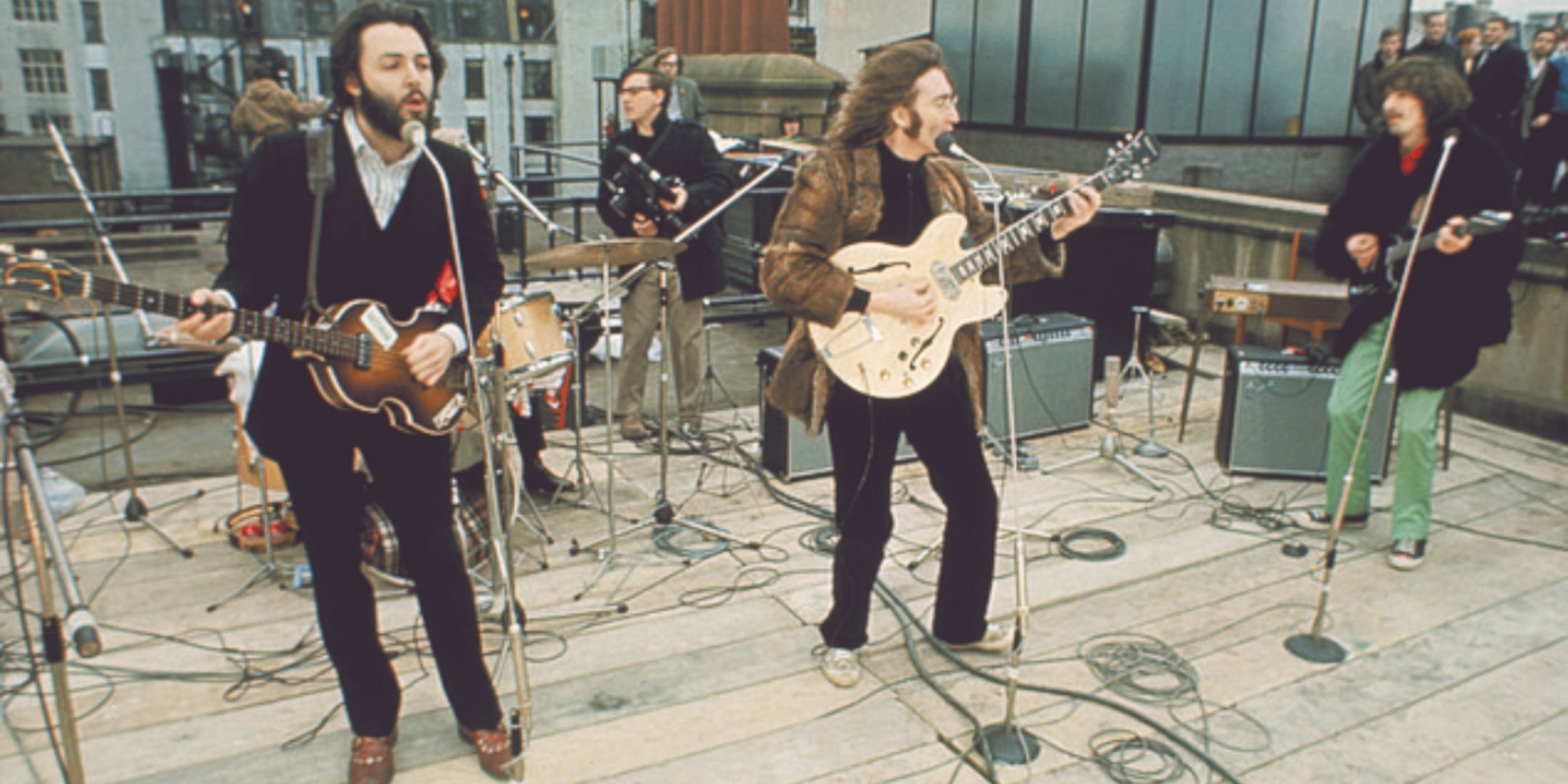When we delve deep into the cherished foundation of rock and roll music‘s creative essence, we often find ourselves stopping at the core of the lyrics. These carefully crafted words weave together the sound of several guitar strings, the melodies of piano keys, the pulsating rhythms of percussion, and the innovative sounds of synthesizers. Together, they transform the entire instrumental collection into something profoundly greater. The lyrics provide a poetic narrative that encapsulates the emotional essence of the music, layered like an intricate backdrop. Yet, in our analysis, how often do we pause to appreciate a song’s opening line?
How frequently do we recognize the crucial role that the introductory line plays, not just in assembling the components of a remarkable song, but in captivating the audience’s attention in a manner that invites them on an unforgettable journey? These initial words set the tone for the singer’s emotions, establish the stakes, and serve as the initial ramp leading into the experience ahead. At times, those few words can distinguish between a genuine hit and yet another unremarkable rock song that we merely acknowledge as we pass by.
The following fifteen examples represent the finest instances of opening lines in rock and roll music that achieve all of these objectives. They serve as gateways to significant narratives or tracks that have become iconic in their own right. These opening lines stand out for a multitude of reasons, making them the quintessential selections in the realm of rock music.
15
The Smashing Pumpkins, Bullet With Butterfly Wings (1995)
A Powerful Reflection on Struggle
The world is a vampire
Sent to drain
Secret destroyers
Hold you up to the flames
It appears deceptively simple, doesn’t it? The imagery of bloodsucking vampires indulging in their sinister habits fits perfectly within the gothic reflections of The Smashing Pumpkins in their 1995 lead single “Bullet With Butterfly Wings” from the acclaimed album Mellon Collie and the Infinite Sadness. However, what truly sets this apart is how Billy Corgan, the band’s frontman, conveys the notion of existence as a predator that seeks to deplete us of our vitality and essence. The pulsating, head-nodding rock instrumentation that kicks in right away amplifies the impact of “Bullet,” drawing listeners into its profound message.
14
Prince And The Revolution, Let’s Go Crazy (1984)
An Energizing Gospel of Life
Dearly beloved
We are gathered here today
To get through this thing called life
When Prince named his band The Revolution, he wasn’t merely referring to a musical collective; he was also initiating a profound transformation in his sound, starting with the groundbreaking, synth-infused sermon of “Let’s Go Crazy,” which was the lead track on his 1984 album Purple Rain. This opening line cleverly incorporates elements of gospel in a way that is both unexpected and deeply relatable. After all, who doesn’t resonate with the idea of uniting together to navigate the wild journey we all know simply as life? This compelling message serves as an irresistible hook.
13
Queen, Bohemian Rhapsody (1975)
A Surreal Exploration of Reality
Is this the real life?
Is this just fantasy?
Caught in a landslide
No escape from reality
Few songs articulate their (somewhat abstract) mission as effectively as Queen’s “Bohemian Rhapsody” does with its opening lines from the 1975 album A Night at the Opera. As the song shifts through various styles, tempos, and lyrical themes, it raises the ultimate questions: is this existence genuine, or merely a figment of the narrator’s imagination? The opening lines skillfully blur the lines between reality and fantasy, enhancing the song’s deep surrealism in an unforgettable manner.
12
David Bowie, Space Oddity (1969)
A Journey Through Cosmic Isolation
Ground Control to Major Tom
Ground Control to Major Tom
Take your protein pills and put your helmet on
Thus commences the ill-fated voyage of David Bowie’s fictional astronaut Major Tom. Although his fate remains ambiguous throughout the song “Space Oddity,” released in 1969, it feels inevitable by the time the final chords fade into silence. The significance of this track lies not only in the poetic nature of its opening lines but also in the scene-setting and storytelling that Bowie masterfully weaves. Set against the backdrop of a pivotal era in space exploration, Bowie delivers a narrative style that is uniquely his, encapsulating the essence of what it means to be “odd” in a captivating way.
11
Sinead O’Connor, Nothing Compares 2 U (1990)
A Heartfelt Expression of Loss
It’s been seven hours and fifteen days
Since you took your love away
I go out every night and sleep all day
Since you took your love away
<p"Originally penned and demoed by the legendary Prince in 1984 for a project intended for The Family, the late Irish singer Sinead O'Connor delivered a remarkable rendition of "Nothing Compares 2 U" in 1990. Featured in her album I Do Not Want What I Haven’t Got, O’Connor not only transformed the song into the pinnacle of her career but also infused it with her unique essence. The way she delivers that opening line encapsulates a haunting sense of longing and sorrow that is both poignant and magical.
10
Black Sabbath, Planet Caravan (1970)
A Psychedelic Journey Through the Cosmos
We sail through endless skies
Stars shine like eyes
The black night sighs
The Moon in silver dreams
Falls down in beams
Light of the night
Featured in their 1970 album Paranoid, Black Sabbath revealed their poetic side through “Planet Caravan.” Departing from their signature hard rock sound, the band embraced a more psychedelic and jazzy vibe, with lead vocalist Ozzy Osbourne delivering the opening line as if serenading from a distant cosmos. This is far from mere acid-inspired material; instead, it showcases a profound poetic beauty that may surprise casual Sabbath listeners or those unfamiliar with their diverse catalog. “Planet Caravan” possesses a remarkable lyrical ecosystem that captivates the imagination.
9
The Rolling Stones, Sympathy For The Devil (1968)
The Devil as a Charismatic Figure
Please allow me to introduce myself
I’m a man of wealth and taste
I’ve been around for a long, long year
Stole many a man’s soul and faith
Leave it to The Rolling Stones to portray the Devil in a captivating light. Crafted for the Stones’ 1968 album Beggars Banquet, vocalist Mick Jagger embodies the Devil, recounting historical crimes over a catchy, danceable groove. The song brilliantly juxtaposes the figure’s evil nature with an alluring charm. This opening line exemplifies this contrast, depicting the Devil as a sophisticated man of wealth and taste, who has cunningly taken many souls and faiths. As the saying goes, the devil is indeed in the details.
8
The Eagles, Hotel California (1977)
A Mysterious Tale of Illusion
On a dark desert highway, cool wind in my hair
Warm smell of colitas, rising up through the air
Up ahead in the distance, I saw a shimmering light
My head grew heavy and my sight grew dim
I had to stop for the night
The Eagles masterfully crafted a mystical narrative with their 1977 track “Hotel California.” This opening line sets the stage for the eerie experience the narrator undergoes upon arriving at this enigmatic “hotel.” In reality, the band used this setting as a metaphor for Hollywood itself and the “weird” experiences and loss of innocence that accompany immersing oneself in that world. The introduction is both inviting and alluring while subtly hinting at an impending sense of foreboding that lurks beneath the surface of the desert’s warmth.
7
The Beatles, Let It Be (1970)
A Timeless Anthem of Hope
When I find myself in times of trouble
Mother Mary comes to me
Speaking words of wisdom
Let it be
As the title track of The Beatles’ final studio album, “Let It Be” stands as one of those classic Paul McCartney-led compositions that have achieved an iconic status akin to “Hey Jude.” The soothing piano notes and this lyrical introduction serve as a warm invitation to something that immediately commands attention and significance with “Let It Be.” At its core, the song embodies a sense of support and comfort, allowing listeners to find solace in its message, making it easier to accept the challenges they face.
6
Nirvana, Come As You Are (1991)
An Invitation to Embrace Authenticity
Come as you are, as you were
As I want you to be
As a friend, as a friend
As an old enemy
Take your time, hurry up
Choice is yours, don’t be late
Take a rest as a friend
As an old memoria
Released as the second single from Nirvana’s groundbreaking 1991 album Nevermind, “Come As You Are” is another lyrical gem from frontman Kurt Cobain that invites multiple interpretations. Some listeners perceive it as a commentary on drug use, while others interpret it as a call for individuals to embrace their authentic selves in a judgmental world. Regardless of the perspective, this opening line serves as an invitation to feel comfortable in one’s skin, regardless of the unknown journey ahead.
5
Journey, Don’t Stop Believin’
An Iconic Anthem of Perseverance
Just a small-town girl
Livin’ in a lonely world
She took the midnight train goin’ anywhere
It is difficult to think of a more iconic opening line than this one from rock band Journey’s signature song, “Don’t Stop Believin’,” featured on their 1981 album Escape. Fueled by the soaring vocals of the legendary Steve Perry, the impact of “Don’t Stop Believin'” on music history (and karaoke culture) cannot be overstated. Drawing from a storytelling style reminiscent of Bon Jovi or Billy Joel, the song captures the exhilarating journey of two ordinary individuals striving to make their dreams a reality.
4
The Who, Won’t Get Fooled Again (1971)
An Anthem of Defiance and Change
We’ll be fighting in the streets
With our children at our feet
And the morals that they worship will be gone
And the men who spurred us on
Sit in judgment of all wrong
They decide and the shotgun sings the song
The Who concluded their 1971 album Who’s Next with a powerful anthem titled “Won’t Get Fooled Again.” This track embodies a sense of rebellion against the status quo, while simultaneously recognizing that the struggle for change does not always yield positive outcomes; often, it results in the same issues repackaged in different forms. The song’s title and the opening line emphasize the importance of questioning the motivations behind the fights we engage in.
3
The Steve Miller Band, The Joker
A Whimsical Celebration of Love
Some people call me the space cowboy, yeah
Some call me the gangster of love
Some people call me Maurice
Cause I speak of the pompitous of love
Written for a 1973 album of the same name, “The Joker” is one of those uniquely iconic love songs that may seem nonsensical at first glance but carries an irresistible charm that only The Steve Miller Band can conjure. Supported by a funky, laid-back groove, the track exudes an easygoing vibe characteristic of the early ’70s. “The Joker” captivates listeners with its playful and whimsical nature, instantly drawing them in with its enchanting opening line.
2
Bruce Springsteen, Thunder Road (1975)
A Poignant Journey Through Dreams
The screen door slams, Mary’s dress sways
Like a vision, she dances across the porch as the radio plays
Roy Orbison singing for the lonely
Hey, that’s me, and I want you only
Don’t turn me home again
I just can’t face myself alone again
As the opening track of the 1975 album Born To Run, Bruce Springsteen’s “Thunder Road” represents a perfect pairing of artistry and emotion. The introductory words possess a deeply resonant tone of intention, effectively setting the stage for the journey that lies ahead. The listener is immediately thrust into a vivid narrative, feeling the weight of the characters’ experiences as they embark on their quest, making them relatable and authentic from the very first note.
1
Bee Gees, Stayin’ Alive (1977)
The Embodiment of Disco Swagger
Well, you can tell by the way I use my walk
I’m a woman’s man: no time to talk
The music loud and the women warm
I’ve been kicked around since I was born
Driven by the infectious groove of a pop-rock beat, the Bee Gees’ “Stayin’ Alive” has become synonymous with the disco era. Its inclusion in the iconic John Travolta-starring film Saturday Night Fever, released in 1977, cemented its status as a cultural touchstone, serving as a narrative lifeblood for the movie. The Bee Gees perfectly encapsulated the spirit of the era, as the song radiates confidence and flair that mirrors its protagonist’s attitude. That opening line is a distilled expression of determination and charisma.








